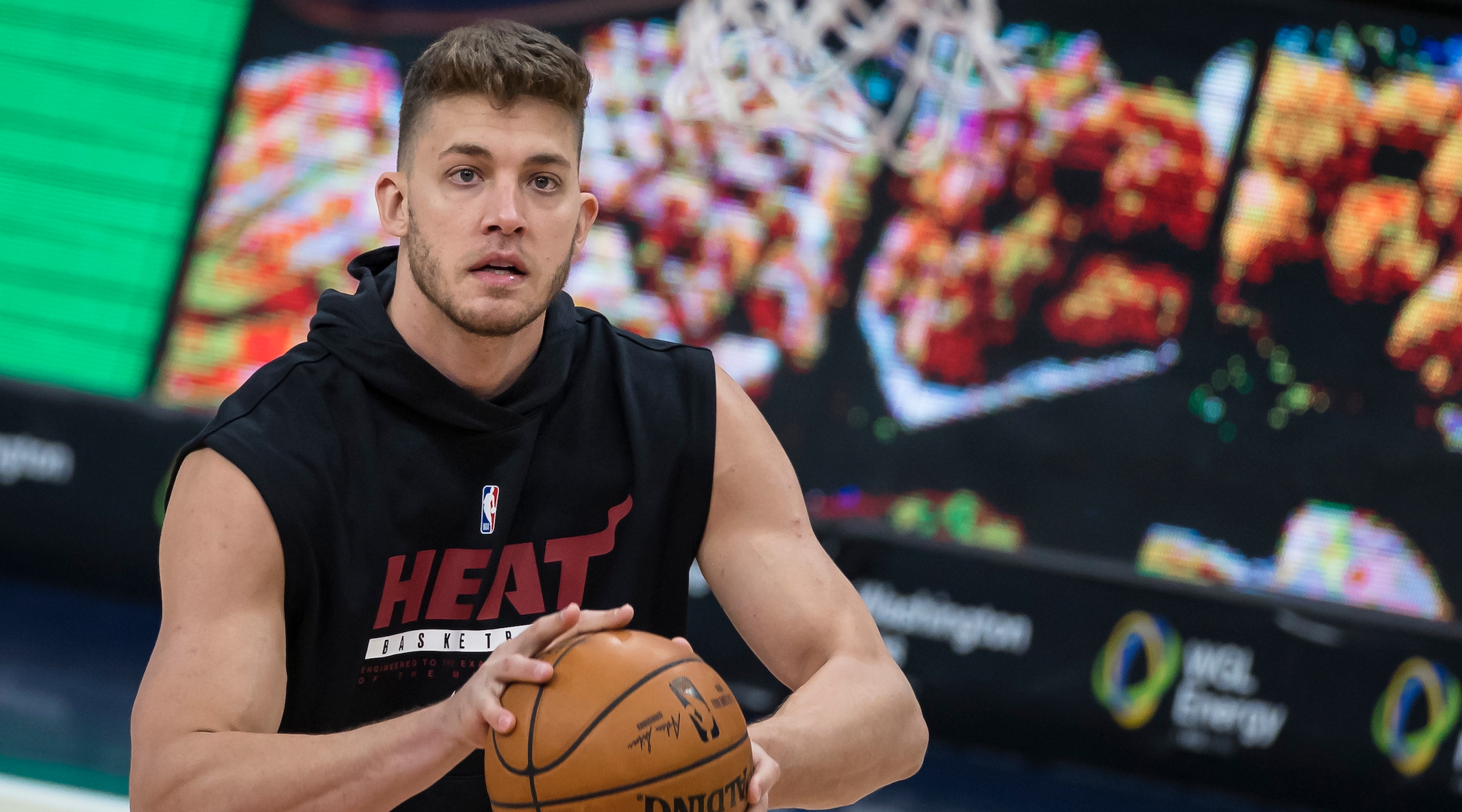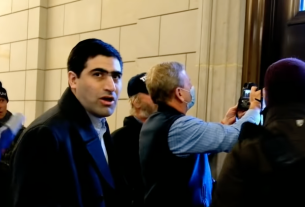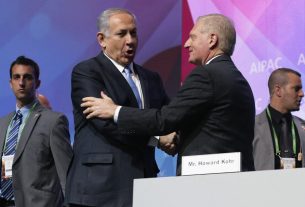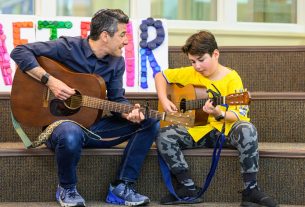(JTA) — Nearly two years after NBA player Meyers Leonard was caught using an antisemitic slur on a video game platform, the former first-round pick opened up about the incident and his subsequent journey toward forgiveness in an interview with Jewish ESPN reporter Jeremy Schaap.
“I know that I made a huge, huge mistake,” Leonard told Schaap, an 11-time Emmy winner who has produced other Jewish-themed content for ESPN. “And like, how in the world did this ever happen? I couldn’t harm a fly.”
Leonard, then a member of the Miami Heat, used the word “kike” while livestreaming a “Call of Duty” video game on the Twitch streaming platform in March 2021. The backlash was swift: Leonard was suspended by the Heat and fined by the league. He was then traded and released.
Leonard apologized the following day, writing, “I am deeply sorry for using an anti-Semitic slur during a livestream yesterday. While I didn’t know what the word meant at the time, my ignorance about its history and how offensive it is to the Jewish community is absolutely not an excuse and I was just wrong.”
The 7-footer was also injured at the time of the incident, and hasn’t played in the NBA since. But now he is healthy and attempting a comeback, having recently worked out for the Los Angeles Lakers.
Schaap spoke to Leonard for the ESPN Daily podcast, relaying the experience to host Pablo Torre.
Leonard, who said he has not yet forgiven himself, told Schaap about the toll the mistake took on him, which included needing 24-hour security because of threats made against him and his family. He even thought about ending his life.
“I felt like I had just destroyed my life and everything that I had worked for, to be honest,” Leonard said.
Torre framed the Leonard episode in the context of Kyrie Irving’s recent antisemitism scandal, saying Irving “became the new face of the foremost antisemitism scandal, in not just NBA history, but modern sports history.”
Schaap alluded to the recent rise in antisemitism across the United States, including the deadly 2018 Pittsburgh synagogue shooting. “This has been, the last several years, a time at which the Jewish community has felt more under attack than it has in a long time,” Schaap said.
Schaap said he began his interview by asking if Leonard knew what he was saying when he used the slur.
“Absolutely not,” Leonard said. “Again, there are absolutely no excuses for what happened that day, and ignorance, sadly, is a very real thing. And that’s what I was.”
Leonard added that he likely learned the word from being active in online gaming, which is often a hotbed for antisemitism and other forms of hate.
Schaap and Torre provided a brief history and explanation of the slur, and Schaap said he was inclined to believe Leonard when he said he did not know its meaning.
“I talked to younger Jewish people from metropolitan areas who said they had never heard the word, and that was shocking to me,” said Schaap. “Now Meyers Leonard, of course, had heard the word, because he used it, which is different. But it does seem highly plausible to me, knowing all these younger Jewish people who don’t know what the word means, that he didn’t know what it means.”
Schaap and Leonard also retraced the timeline of the controversy, from the moment he uttered the word online to his engagement with the local Jewish community in South Florida. Just days after the incident, Leonard met with Pinny Andrusier, a rabbi affiliated with the Chabad-Lubavitch movement in nearby Broward County.
“You’re a good man with a good soul,” Leonard recalled Andrusier telling him. “This happened for you, not to you. You’ll understand eventually.”
From there, Leonard met others in the local community, including Holocaust survivors, and also met with representatives from the Anti-Defamation League and the Greater Miami Jewish Federation.
Schaap asked Leonard if he had absorbed anything from Jewish culture or tradition into his own life. His answer: love.
“Walk outside your door, love people,” Leonard said. “Be kind. Forgive. Through a big mistake of mine, I met a loving community. I met people who had been through extremely difficult times, yet they loved me. And they wanted me to love myself.”




